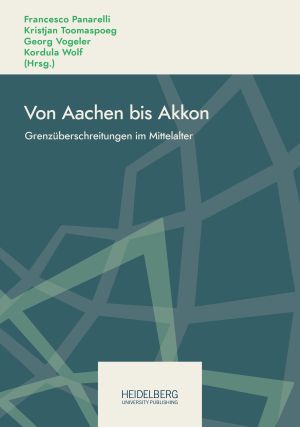Zitationsvorschlag
Lizenz (Kapitel)

Dieses Werk steht unter der Lizenz Creative Commons Namensnennung - Weitergabe unter gleichen Bedingungen 4.0 International.
Identifier (Buch)
Veröffentlicht
Zugang zum Papst. Religiöse Frauen, ihre Reisemöglichkeiten und Verhandlungsoptionen
Abstract During the Middle Ages, religious women were able to undertake occasional journeys to the papal curia and gain access to the Pope. The article develops two types of ‚female visitors of the Pope‘: on the one hand, those who went to the papal curia to seek support, privileges, special dispensations or confirmations of normative texts, or to appeal to the curia; on the other hand, the charismatic women, who had more freedom, especially from the fourteenth century onwards, and a greater degree of mobility, allowing them to travel. This established a new form of interaction, negotiation and communication, also with the papal curia and the Pope. The examples discussed here are not cloistered nuns, but ‚semireligious‘ women who were not subject to cloistering rules, and had a special spiritual authority by virtue of their mystical gifts. This allowed them to make their way to Rome or to the papal curia, laying claim to direct access to the Pope to present their concerns on behalf of the entire christianitas quasi at eye level. Drawing on the power of their charism, they spoke in very critical and harsh tones about the state of the Roman Church and its ministers, addressing themselves directly to them. The legends surrounding these women show, however, that the authors were aware that travelling was always a problematic and dangerous endeavour for religious women, and required special legitimisation.






